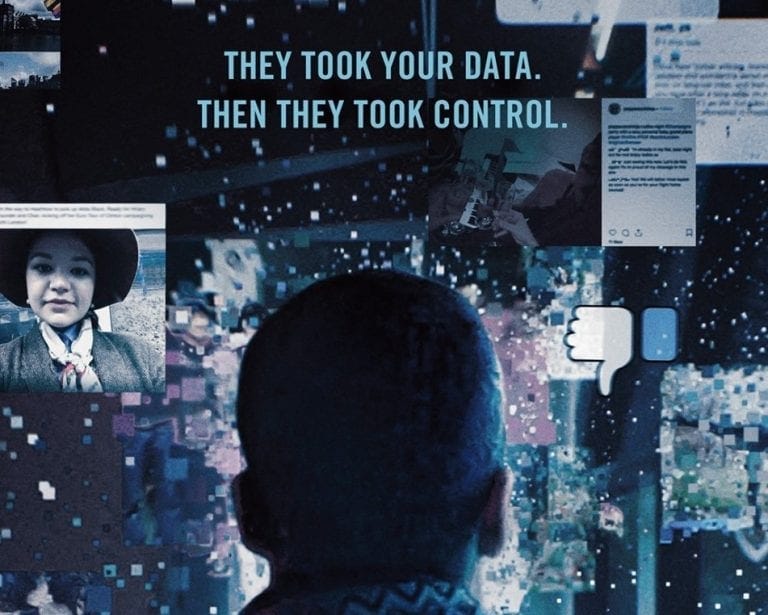
15th of August, 2020, when the whole world is battling the pandemic of Covid-19, I decided to switch on my Netflix and celebrate my Indian Independence day watching what an Artificial Intelligence algorithm had to recommend my human intelligence. “The Great Hack” eventually popped up in the trending category section and I curiously clicked it. What happened for the next 2H 18mins was a pure reflection of the consequences of the “Information War”.
A funny paradox that lead to this event is Netflix predicting a show how data is important and should be rightfully granted permissions based on my viewing patterns.
Spoiler Alert:
The Great Hack talks about the Cambridge Analytica scandal and how they used a strategy of psyops (Psychological Operations) coupled with massively mined data from Facebook to tailor-made customized campaigns catering to the needs of their clients ranging from Pro-Brexit supporters (Leave.eu) to The Trump Election campaign and various other political movements.
Having worked in the Technology industry as a data scientist, I have hands-on experience of how a well-designed data warehouse is more valuable than a house full of gold. It’s an intangible asset that is more valuable than the tangible assets.
The Rise of Big Data
The rise of Big data came around the last decade with the launch of smartphones and it’s subsequent influence on the Internet of things industry and edge computing. We are now living in an extremely well-connected world of data, connectivity, and convenience residing at the click of a button.
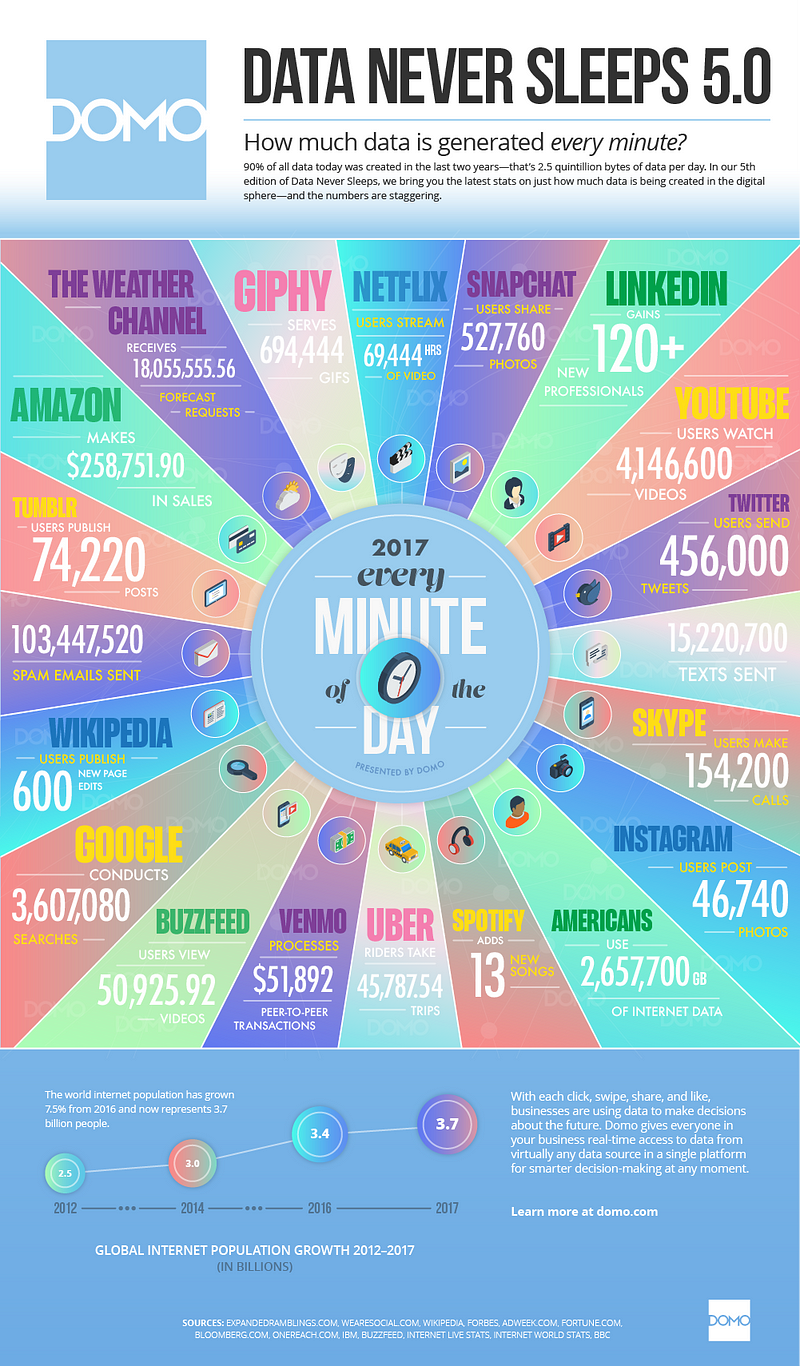
As per the above chart, we were producing 2.5 Quintillion bytes of data every day in 2017 (This equals 10 million Blu Ray discs, the height of which are 4 Eiffel Towers stacked on one another). This is based on the fact that only 59% of the world’s population is using the internet.
Now that we have an understanding of data that we produce, let’s see how we are producing these. If I have to segregate these data sources, they can be listed in the following ways:
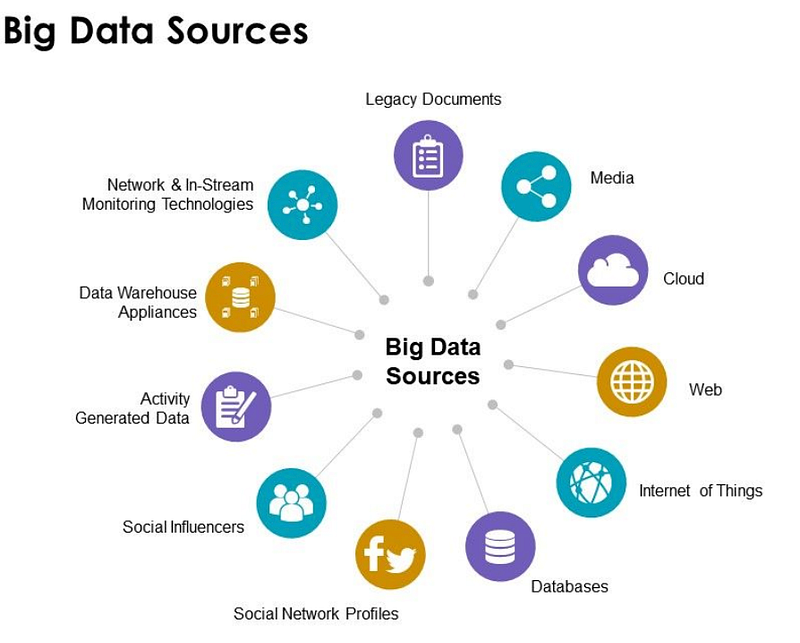
- Connected devices that we use on our daily lives, from the Fitbit Smartwatch to Alexa, our smart home systems, etc
- Our digital engagements that can be divided into two further categories:- a) Our Social Network activities b) Our normal web browsing activities
- Virtual mediums to interact with physical world events like contactless payments, public transport check-ins, etc.
Know your data
“With great data comes great responsibility”.
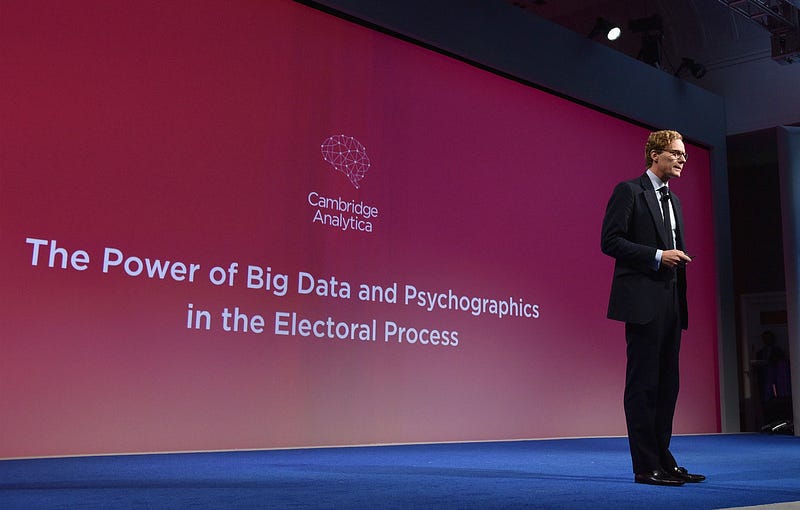
Following the movie, what was striking enough how naively we operate with our data in the virtual world. Ignorance cannot be mistaken for naivety. Very often I have seen my friends and family members download apps and grant permissions without understanding what they are giving access to. I have also seen they were asked to fill surveys as part of improving customer experience without clearly defining what will be used by these data, only to be followed a week later on by mobile-SMS spams and ‘last-minute’ promotions. (Needless to say, it never improved the customer experience)
When you’re downloading an app, you have to question the permissions that the app asks. For example, if you’re installing Uber, and they ask to access your contacts, don’t grant. What has Uber got to do by knowing whom you last called from your phone or which friend of yours has a Shiba-Inu as his profile picture!!
With the advent of GDPR, data privacy is taken quite seriously by the EU and other countries are also following suit. Whenever you’re registering yourself on a platform or an app, a) Understand what data you’re giving access to b) and, do you need to give away this information. If you’re in doubt, possibly write an email to the company to get some clarifications, and if your doubts are not cleared, revoke your data access permissions and account information.
When Cambridge Analytica was running their campaigns, they had 5000 data points for every subject in their database. That’s enough information to understand what you like, where you go, why you like what you like and how can make you like something that you don’t like.
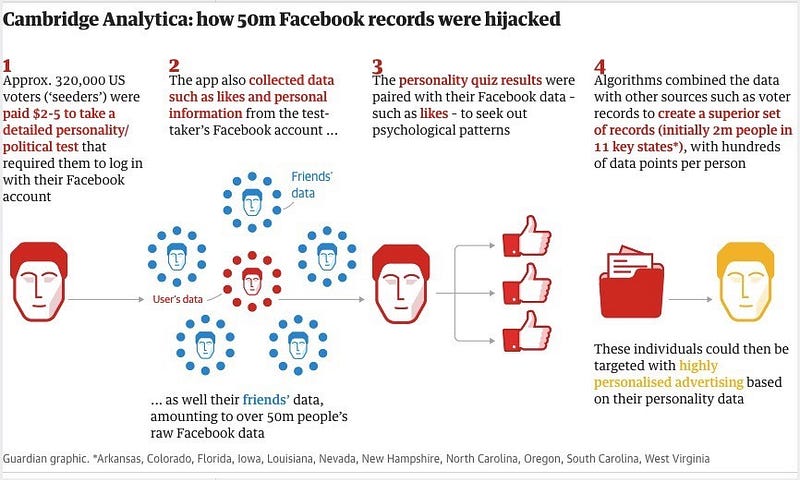
Guard your data

Very often I was asked what are the implications of sharing data with strangers. As stupid as this question sounds, I found that quite a lot of people are unaware of how the data they share can come back to at them in a more targetted customized advert (Or even the Nigerian prince well-wisher). The answer I mostly give is, “Would you like to give your car keys to a stranger or the keys to your apartment to whoever asks it from you?” The only reason we don’t share our house keys or any key with strangers is because of PRIVACY! Sharing the right amount of data ensures your privacy and safeguards you from unwarranted, unethical scams, identity thefts, phishing, etc!
rightprivacyhuman rightHuman RightsRightshuman rights
The protection of data is steadily being thought of as a basic human right with governments actively working with their constituencies to safeguard and uphold these values. Privacy Shield is an extreme contract that we expect 3rd party companies to uphold when working with our data. Privacy shield defines the accountability of Onward transfer, if proper measures are not taken, our data can be exposed to the wrong hands, and the impact can be on a psychological level equivalent to a Chernobyl explosion.
Are there any other ways to safeguard our data?
As the documentary pointed out that Data is more valuable than oil, and is considered as the most expensive asset in the world. It’s our primary duty to come up with ways in which we can safeguard this.
Centralization allows manipulation, modifications with the data. Decentralization along with blockchain technology can be one way by which we can propose a solution to this. As long as when one entity is not the major owner of this data, it will allow not only to uphold the immutability of the data on the blockchain ledger but also ensure the data is properly encrypted.
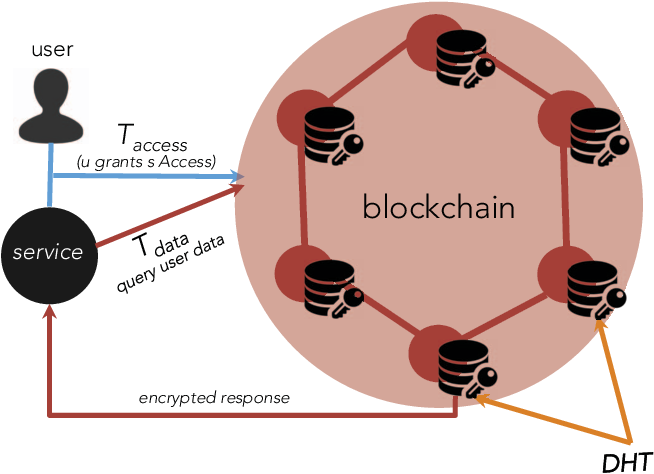
Data Privacy = Fair Democracy!

Democracy is a deeply flawed system primarily because the voters in a democratic government have information asymmetry when they are casting their votes. This makes the scales tip to the one side without acknowledging the asymmetry that is present. Take, for example, the 2016 USA elections where Donald Trump lost the popular vote but won the electoral college, it’s a clear sign of how data was used to influence the election. Cambridge Analytica had mined enough data to create customized messages for the different voters which they could target and influence as per the requirements of the campaign, thus proving how data-driven elections can be won. In simpler terms, for example, you’re taking a test and you answered one question extra as opposed to your friend because she didn’t have access to what you studied/knew beforehand. Does this make the test a fair one?
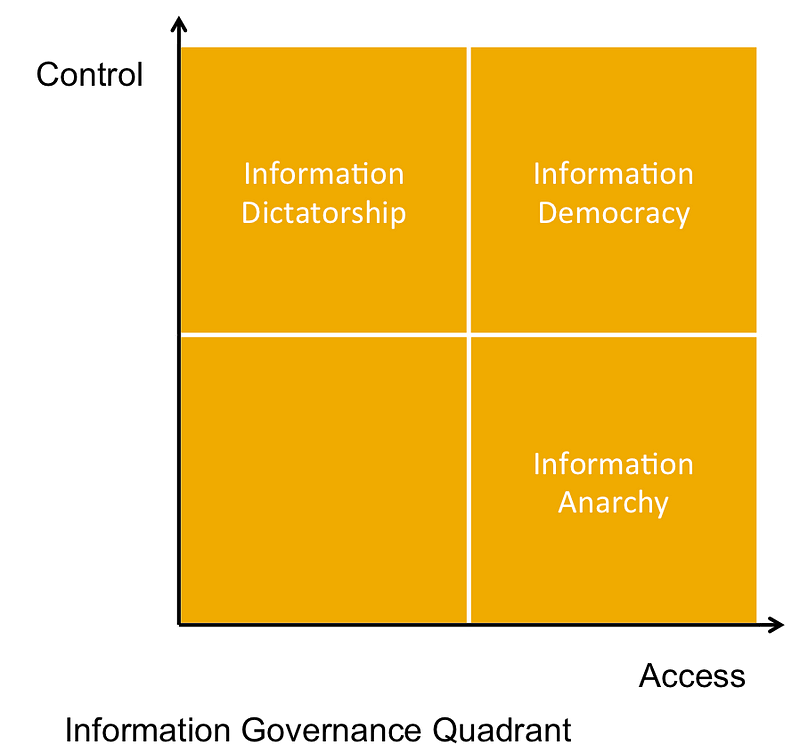
Conclusion
We are at a critical time where our lives are essentially dependant on how others in the society work (Yes, please wear a mask and break the chain). We need to understand our digital footprint, the consequences of sharing the data with an organization, and understanding how will that data be utilized and harvested. In the era of an information technology war, ignorance and naivety can’t be deemed as a bliss.
So the next time an app or an organization asks for permission, make sure to exercise your data rights!

